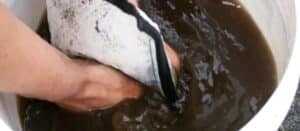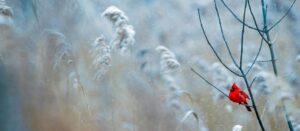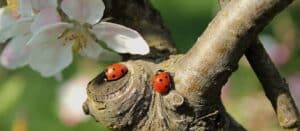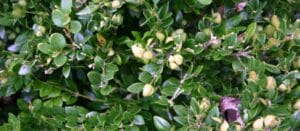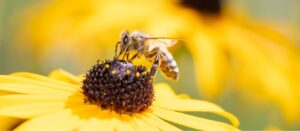In the fall, leaves fall – usually. But what does it mean when it’s winter and there are still leaves on your tree? Why don’t they fall off? And is it bad for the tree?
Usually, when tree and plant parts die, they fall off. For example, spent blossoms are shed after blooming and leaves fall after they turn brown in autumn. However, these parts are sometimes retained after they are dead and dry. This is referred to as marcescence.
The word marcescence comes from a Latin root meaning “to shrivel,” and it literally means “withering but persistent.”
Why do leaves fall in autumn?
During the summer, leaves help a tree receive nutrients through photosynthesis. The leaves soak up sunlight and moisture and convert it into food for the tree.
Under normal circumstances, when the temperatures drop, it signals the tree to stop producing chlorophyll (which is why leaves lose their green color in fall) and to develop abscission cells where the leaf stem attaches to the tree. These cells form the “abscission layer”, essentially cutting off the leaf from the tree, causing it to fall to the ground.
It’s Winter. Why Won’t the Leaves Leave my Tree?
There are a few instances where trees hold onto some (or even most) of their leaves throughout at least part of the winter. Usually, this is because the abscission cells don’t form before the weather turns from autumn into winter.
Here are some things to consider if you notice your tree(s) still have leaves in winter.
Was there a sudden drop in temperature?
If it gets bitterly cold before the leaves naturally drop, the cold can kill the leaves immediately. In this instance, the tree didn’t have a chance to develop abscission cells, so the dead leaves stay in place.
The leaves will fall eventually, either from the weight of snow or from wind.
Was it a warmer-than-usual fall?
If, however, the weather stayed warmer longer than normal, the tree never receives the signal to create the abscission cells, so again, the leaves stay on the tree. They will remain on the tree until they eventually die, even if the weather gets colder after that.
Sometimes, marcescence occurs if both of the above weather events happen. A warm fall can have a sudden cold freeze; the abscission layer is never developed and the leaves are killed by the cold.
Was too much fertilizer applied?
Too much nitrogen fertilizer confuses the tree. The tree is actively growing in response to the fertilizer and does not prepare for winter.
Is it one of these types of trees?
Some types of trees are more likely to hang onto their leaves through the winter months and then drop them in spring, even in ideal weather conditions. The scientific reasons for this vary (as one scientist pointed out, you can’t ask a tree why), but the most common theories for why leaves stay on these particular types of trees through the winter are:
- so that the fallen leaves can provide nutrients to the soil in spring,
- to deter pests (deer don’t seem to like the taste of marcescent leaves), and/or
- to get moisture from snow to the tree during wintertime.
In central New Jersey and eastern Pennsylvania, there are several trees that often keep their leaves in winter, including:
- Pin Oak
- English Oak
- American Beech
- Hornbeam
- Witch hazel shrubs
You may also notice young deciduous trees with dead leaves in winter.
If you enjoy birdwatching, one of these naturally marcescent trees is a great place to hang a bird feeder as the winter leaves provide shelter.
Don’t Worry But Watch Carefully
In any of the above situations, the tree will eventually lose its leaves, allowing the new buds to form in spring. Sometimes the buds themselves force the leaves off the branches.
As long as your tree is in good health and free of pests and diseases, leaves that remain during the winter months should not be a cause for concern. However, snow or ice on the leaves can cause added weight to your tree, causing limbs to break and trees to fall. Keep a close eye on your trees during any heavy snowfall or winter storms.
GET THE LATEST NEWS
Subscribe to the Organic Plant Care Newsletter and get timely and helpful tips and updates monthly.
There's no spam - we promise!

